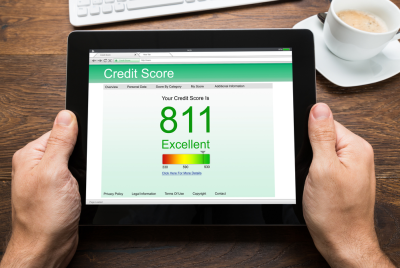 So you’ve decided to buy a home!! Excellent! This is an exciting time for you. But it can also be a stressful time if you are not prepared. There are a lot of hoops you have to jump through before you get the keys to your dream house. In this article, we are going to talk about the many things you can do ahead of time to make the process run smoother. You don’t want any surprises.
So you’ve decided to buy a home!! Excellent! This is an exciting time for you. But it can also be a stressful time if you are not prepared. There are a lot of hoops you have to jump through before you get the keys to your dream house. In this article, we are going to talk about the many things you can do ahead of time to make the process run smoother. You don’t want any surprises.
Below are 4 steps you need to take before you begin your search for a home. The key here is to be as prepared as possible. The more work you have done in advance, the smoother this process will be. It will save you a lot of headaches and save time.
First, decide how much home you can afford to buy based on your monthly income. Use a mortgage calculator to figure out what that number is. It will also give you an idea of how much money you need for a down payment. But, we’ll talk about that a little later. Let’s get started by talking about credit scores.
A Strong Credit Score
If you don’t know what your credit score is, now is the time to get acquainted with it. This is the first place lenders will start before considering you for a mortgage.
You may think that as long as you pay your bills on time, you have a good credit rating. Your credit score provides information about your financial health and your ability to pay back your debts. Credit scores include all your credit history such as tax returns, credit card debt, car loans, student loans, personal loans, any bills that went to collection, bankruptcy, and anything else associated with paying your debts.
There are three major credit agencies: Equifax, TransUnion, and Experian. You can request a credit score report from each of these companies for free once a year. If you are not doing that already, get started now. You can order your reports online by visiting the Annual Credit Report website.
Your credit score is important because it helps to determine the mortgage rate a lender will offer you. Generally, the better score you have, the better the interest rate.
 So what’s a good credit score? Ranges will vary depending on where the report comes from but here’s a guideline:
So what’s a good credit score? Ranges will vary depending on where the report comes from but here’s a guideline:
Excellent: 800 and up
Very Good: 740 – 799
Good: 670 – 739
Fair: 580 – 669
It’s safe to assume that anything under 580 would be considered high risk. Once you receive your credit report, look for anything out of the ordinary that may have an impact on your score. If you see something that looks wrong, check it out. You want your score to be as high as possible before you start shopping for a mortgage. Your credit score will help give you a little leverage when you sit down with a lender.
Save For a Down Payment
There was a time when putting 10% down on a house was the norm. That’s no longer the case. Generally, most lenders that provide conventional loans will require you to put 3% down with Private Mortgage Insurance (PMI) or 20% of the purchase price without PMI.
There are other loan types that have different requirements such as VA loans or FHA loans. So if you were previously in the military, this could be an option for you.
Benefits of a High Down Payment
 The more money you put down on a home, the less you have to pay back on a mortgage. That’s just basic math, right? But, there are other reasons to put down as much as possible and that brings us back to PMI again. For instance, generally, if your down payment is less than 20% your lender may require you to purchase private mortgage insurance (PMI) because your financing is over 80%. PMI protects your mortgage if you should default on your loan. PMI is added to your monthly mortgage payment so your monthly payment will be higher. The cost of PMI is about 1% a year of the loan.
The more money you put down on a home, the less you have to pay back on a mortgage. That’s just basic math, right? But, there are other reasons to put down as much as possible and that brings us back to PMI again. For instance, generally, if your down payment is less than 20% your lender may require you to purchase private mortgage insurance (PMI) because your financing is over 80%. PMI protects your mortgage if you should default on your loan. PMI is added to your monthly mortgage payment so your monthly payment will be higher. The cost of PMI is about 1% a year of the loan.
Closing Costs
Closing costs are paid by both the buyer and the seller but contain different fees. Below are some of the fees that you, as a buyer, can expect:
- Loan origination fees
- PMI
- Credit report fees
- Escrow fees
- Attorney fees
- Title search and title insurance
- Real estate transfer tax
- Property taxes
- Homeowner’s insurance
- Surveying fee
- Appraisal and inspections fees
There are a few ways to offset certain closing fees. One way is to ask the lender to omit certain expenses or to stagger them instead. You could even ask your lender for a “no-closing-cost” mortgage. But the downside of this arrangement is that you will most likely pay a higher interest rate to offset those costs.
If a seller wants to close fast, you can try negotiating certain fees. If you are buying a new home, you can ask the builder to pay closing costs so you can buy upgrades.
Sometimes your lender will have grants that you can qualify for and offset some of your closing costs. There are also several programs that may help as well. Check out the Illinois Housing Development Authority for more information.
So save as much as you can for as long as you can. Next, let’s talk about the preapproval process.
Get Preapproved For a Mortgage
 Now that you are armed with your credit score and down payment, you can start looking for a mortgage lender. Since you’ve used the affordability calculator, you know how much house you can afford. Now you can start the preapproval process.
Now that you are armed with your credit score and down payment, you can start looking for a mortgage lender. Since you’ve used the affordability calculator, you know how much house you can afford. Now you can start the preapproval process.
In the state of Illinois, a minimum credit score of 640 is typically required. If your credit score is higher, the process should be easier. Also, the bigger the down payment, the easier as well. You will also have to meet minimum debt-to-income ratio requirements. In the state of Illinois, the debt/income ratio is 45% to 50%. FHA loans are a little less.
Start with your local bank. They probably already know you and you may even have developed a relationship with the bank manager.
If you are a member of a credit union, they may also have mortgage loan products with reduced interest rates.
Mortgage brokers take all the work out of finding a lender. Mortgage brokers work with many lenders. They can find the best lender and loan for you and will act as an intermediary. Here are two that our clients use and have had great success with:
- Latrusia May GuaranteedRate
- Brenda Wild Caliber Home Loans
You can also ask friends, family, and work colleagues for recommendations. They may be able to suggest someone.
The main thing is to have a preapproval letter in hand to present to any potential lender.
Find A Qualified Real Estate Agent
 The best place to start is with a recommendation. But if you are moving in from out of town that could be difficult. So let’s pretend that you don’t have any recommendations. Where do you start?
The best place to start is with a recommendation. But if you are moving in from out of town that could be difficult. So let’s pretend that you don’t have any recommendations. Where do you start?
Decide what you need in a real estate agent. for instance, your agent should:
- Be responsive to your needs
- Put your requirements before theirs
- Keep things conventional
- Care about people
- Keep you well informed of any homes that fit your criteria
- Communication is very important from the very beginning to closing day
It may be necessary to actually interview agents to see which one you click with. Start by going to open houses in the area where you’d like to live. It will give you a good opportunity to have casual conversations with the selling agents while you learn about the housing market.
Your agent provides a great deal of information not included on the MLS sheet such as employment opportunities in the area, community information/amenities, and other property questions that you may have.
Conclusion
Following these four steps will make the buying process of finding a new home much less stressful. Once you have your loan pre-approved and you have found an agent, finding your new home will be a much more enjoyable experience.
If you are ready to find your dream home, call Team Flannery at 331-234-3795 for a hassle-free consultation. We look forward to assisting you on your home search journey!
